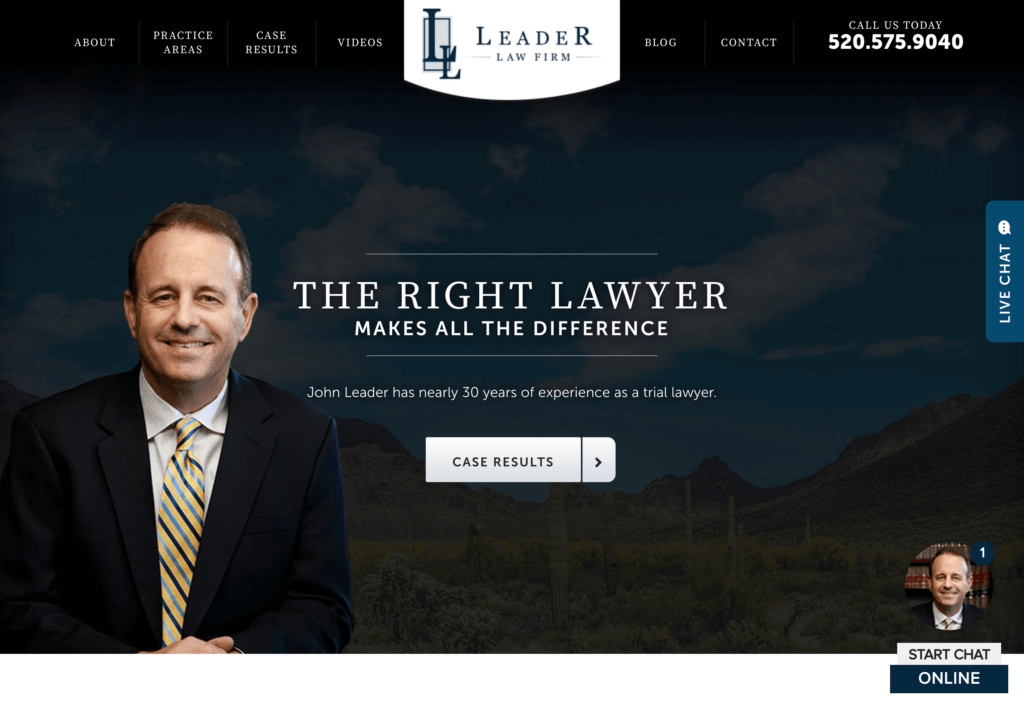Subscribe to receive featured episodes and staff favorites once a month.
Newsletter SignupFor so many law firms, SEO seems like the golden ticket to attract new clients and get your law firm noticed. And while SEO remains one of the most effective ways for law firms to grow their business, how do you play the SEO game successfully?

In the early days of search engine optimization (SEO), keywords were everything. Many search engines, including Google, relied heavily on matching keywords and phrases in a user’s search query. However, SEO has come a long way since then – and with new algorithms and semantic search capabilities, Google has started looking at the context of content, rather than simply scanning for keywords. So what does this mean for your law firm’s SEO? Are keywords still relevant? And how can you implement the best content marketing and SEO strategy for your law firm?
In this article, we’ll discuss:
Lawyerist Podcast
Search engine optimization (SEO) is simply the process – or processes – of attracting more prospective clients to your law firm’s website by increasing your website’s position in Google’s search results. This requires in-depth keyword research, onsite optimization, link building, content development and more.
Tip: According to a report by the Search Engine Journal, 75 percent of Web users never scroll past the first page of search results.

Contrary to popular belief, while keywords are still useful in SEO, they are not the most important factor. This is because SEO is far more complex than simply putting keywords on a page.
Google has continued to optimize their search engine algorithms by focusing more and more on the consumer experience and the context of content, rather than just keywords. This has required SEO and content marketing strategies to shift away from a keyword-density focus, to more of a human focus. And while this may seem like just another step to have to master in the SEO battle, it is actually a benefit for lawyers and law firms looking to improve their website’s ranking.
When it comes to SEO, lawyers lose sight of the fact that they are not trying to win the Google race – they are trying to win the client race. At the end of the day, you’re really trying to capture the clients attention, not Google’s attention. So how do you do this?
Perhaps one of the best ways to capture clients’ attention and increase client conversions is through providing them with the best content possible. Ask yourself: ‘What is it that your clients want to know?’ ‘What are the questions potential clients want answered?’
Starting with questions is the best place to start when re-thinking your law firms’ SEO strategy. Instead of optimizing for a keyword, you’re optimizing for your clients’ questions – and at the end of the day, it’s the clients that matter (and paying you) not Google.
By taking this approach to SEO, your law firm is simply taking the questions of potential clients, then answering them through high-quality content posted on your firm’s website. This approach to SEO not only provides value for potential clients, but it also helps build rapport and translates well across Google’s platform.
It is also easier than trying to optimize for keywords! When you are optimizing for keywords on your website, you are competing against every other law firm out there that is trying to optimize for the same keywords. And because people search so differently and the search phrases that clients put in can vary so much, you can’t always optimize for certain keywords. But…you can optimize for client questions. You can optimize your website content to sustainable online business.
Tip: Question-related searches are a significant part of the overall searches Google receives each day. Recent studies suggest that of the roughly 3.5 billion searches per day, approximately 8% of search queries are phrased as questions. And with more and more people using voice search commands on their phones, this number is ever increasing. So now, more than ever, optimizing your law firm’s website for question keywords can make a huge difference to your overall SEO strategy.
Lunch Hour Legal Marketing
Lawyerist Podcast
#139: 14 Low-Cost Ways to Improve Your SEO Profile, with Jeff Skrysak
Keywords and quality content are only a small piece of your overall SEO score. While good content on your website is key, how you deliver this information is just as important.
Companies often spend a lot of time (and money) on keywords, and not a lot of time on the consumer experience when customers actually come to the website. You are way better off spending more time, money and research on the customer experience than you are on your website’s keywords. So how do you improve the customer experience on your website, and – in turn – improve your overall SEO performance?

A key aspect to consider when looking at customers’ experience on your website is – ‘Are customers finding value when they visit your site?’ Google loves high keyword-rich content, but it hates a high bounce rate. So once customers find your website, what are you doing to keep them there (and to keep them coming back)?
Tip: Your bounce rate is simply a measure of how many people view only one page on your site before immediately leaving again.
A few tips to keep users engaged, decrease your bounce rate and increase your chances of client conversions include:
1. Making Quality Content Easily Accessible for Website Users
Your law firm’s website should not be confusing or difficult to navigate. When potential customers visit your site, it should be easy for them to find and access the information they are looking for. This includes making contact information readily available, utilizing dropdown menus or menu bars, effectively using headings and subheadings throughout your site, etc.
2. Having Relevant Information
In addition to making content easy for users to access, the content on your website also needs to be relevant to their search needs. Your content needs to provide users with what they expect. They need to land on your page and get exactly what they wanted as soon as possible. If you can do that, most people will stay on the site long enough, which will tell Google your site is topically relevant.
3. Creating Engaging Website Copy and Content
Law firms that create content optimized for search engines greatly improve their chances of getting their business and their services in front of potential clients. But that’s only half the battle. After getting that initial click, your content needs to keep users on the site. Quality content and engaging copywriting are how you hook someone’s attention and keep them interested in learning more. The best content conveys empathy for the problem and instills confidence that the law firm can provide the most satisfactory solution. When content appeals to a user – and they spend more time scrolling or clicking through your website, Google takes that as a favorable sign which boosts your law firm’s chances of higher rankings.
Tip: A great and easy way to provide value to potential customers is through checklists and resource files customers can download. This not only helps you build rapport and authority with potential customers, but it is also a great way of capturing email leads. Content that answers questions, is engaging, easy to read and provides valuable information to a potential client, are all important factors to consider when creating content for your law firm website.

Law firm SEO is an ongoing and long-term marketing strategy. It’s about providing value and building goodwill with users who are then more likely to become future clients. And it is a must for law firms that are looking to stand out and continue to grow their businesses in an ever competitive online marketplace. With the constantly evolving landscape of online search, the biggest thing lawyers and law firms should focus on when it comes to SEO strategy is – their clients. Lawyers and law firms understand the needs of their clients better than anyone else. By redirecting your law firm’s SEO focus from keywords to quality content for your clients, you will be amazed by the results.
The Digital Edge
Legal Toolkit
Lunch Hour Legal Marketing
Lawyerist Podcast
Un-Billable Hour
Getting Seen, Getting Heard, Getting Hired In the Digital Jungle